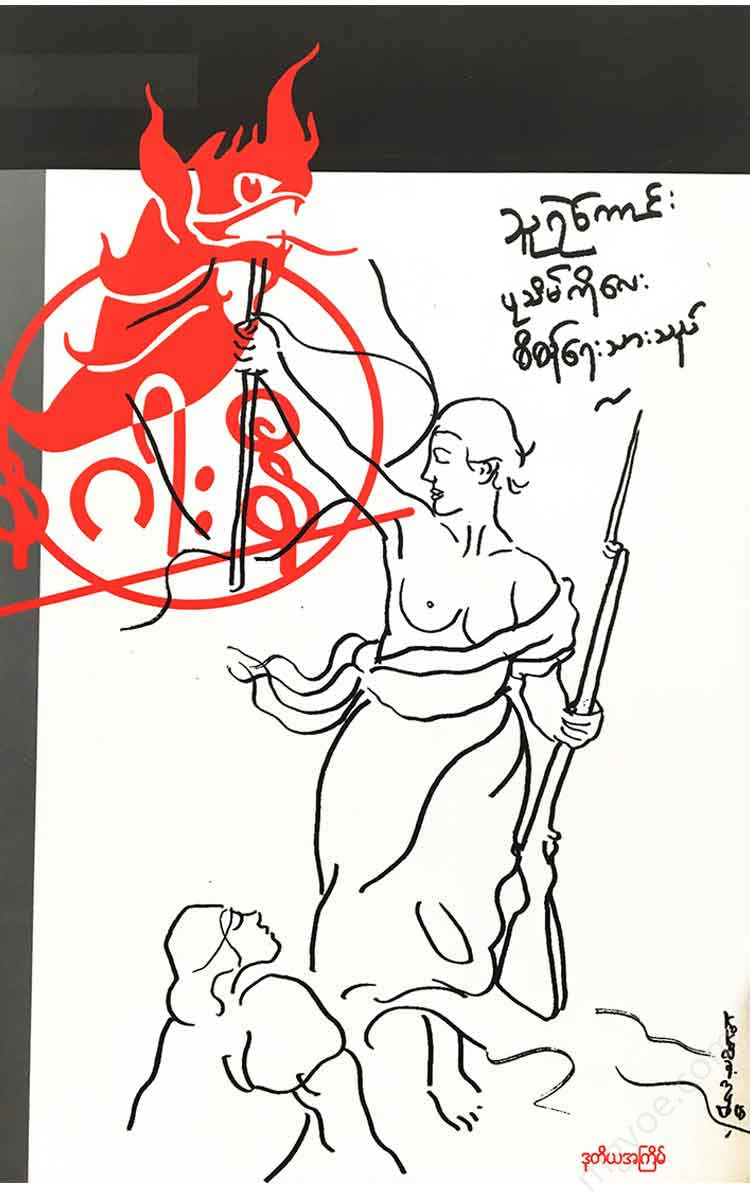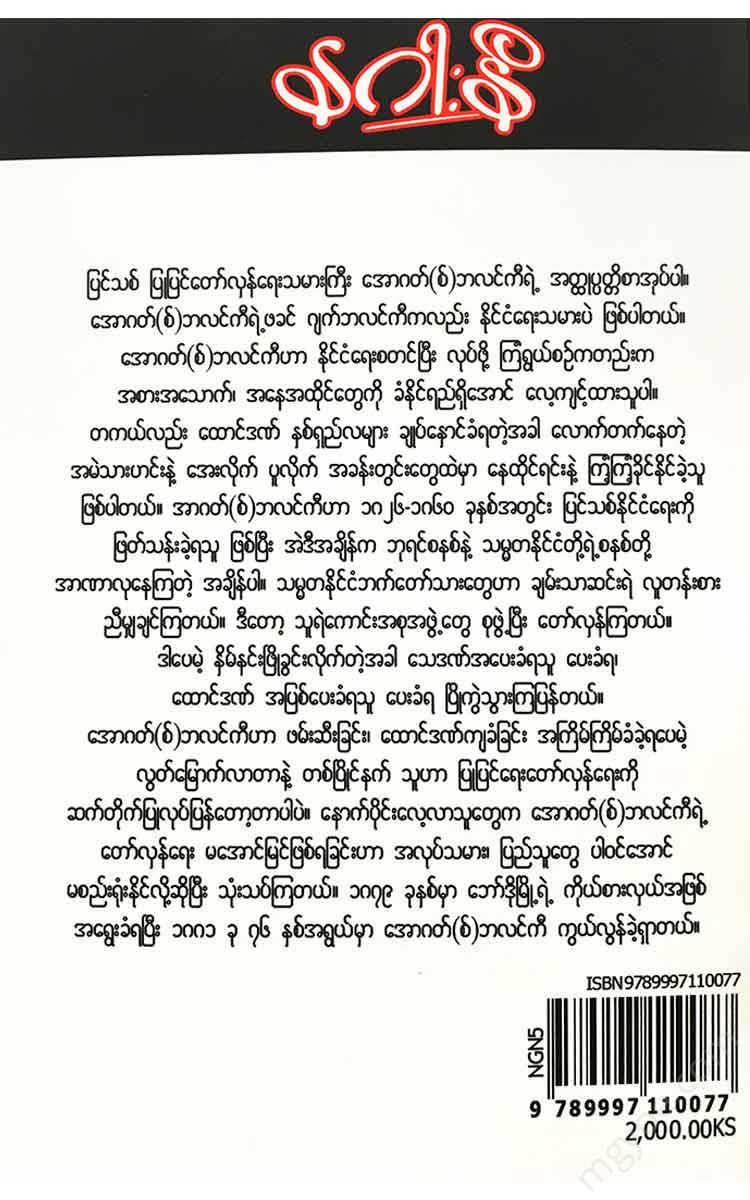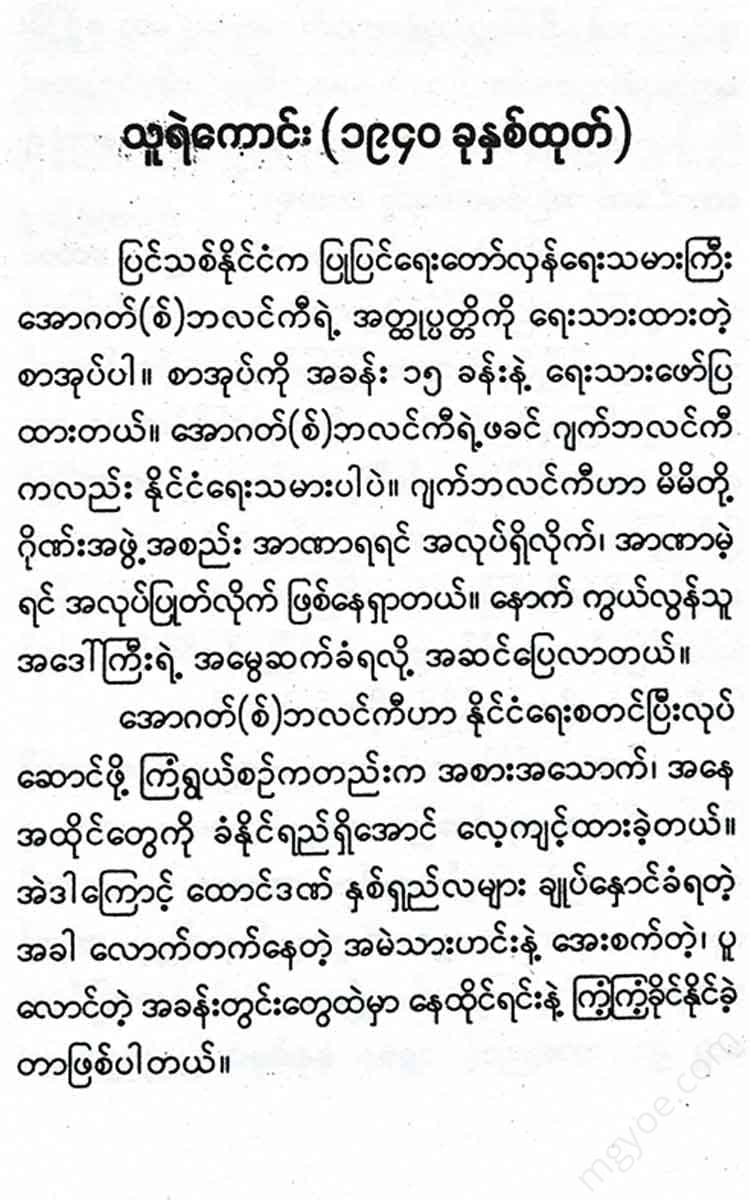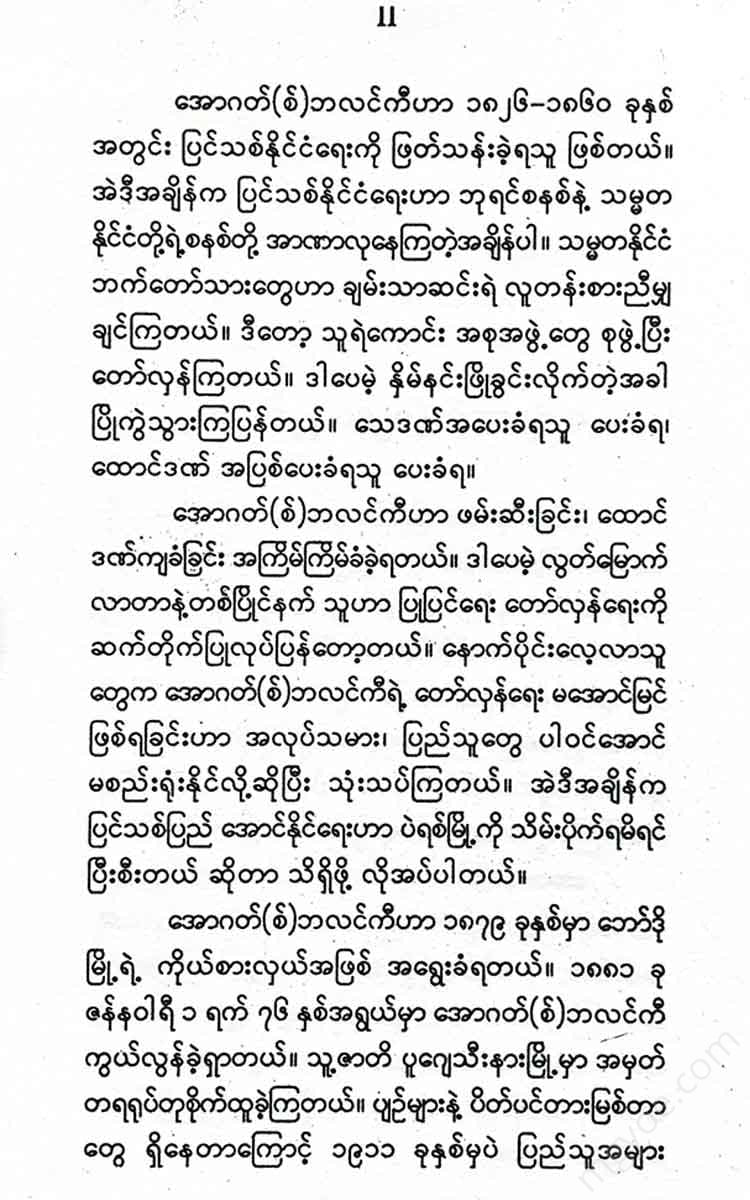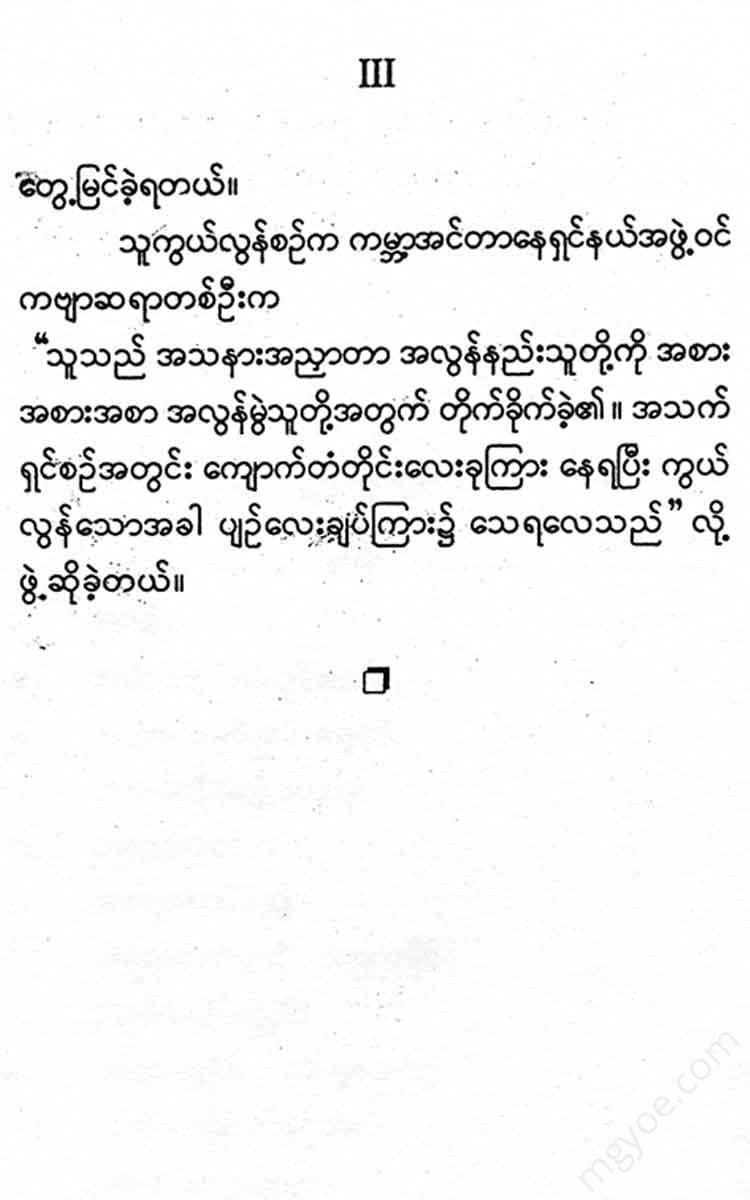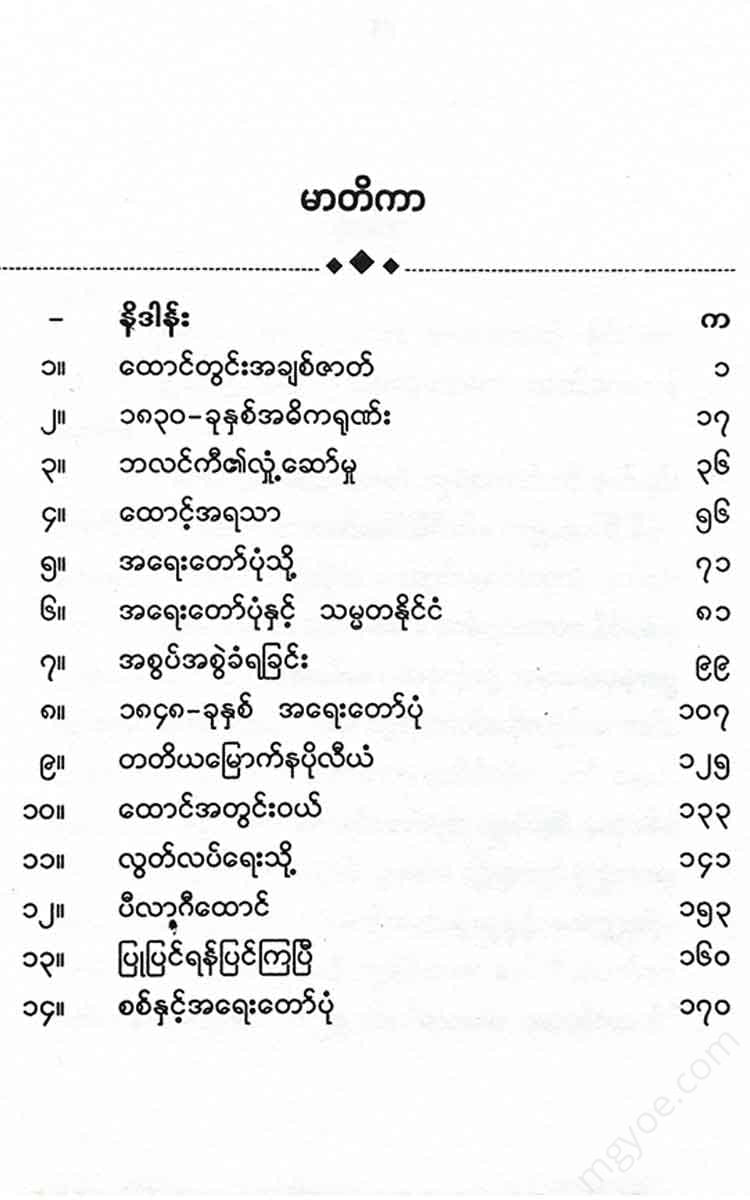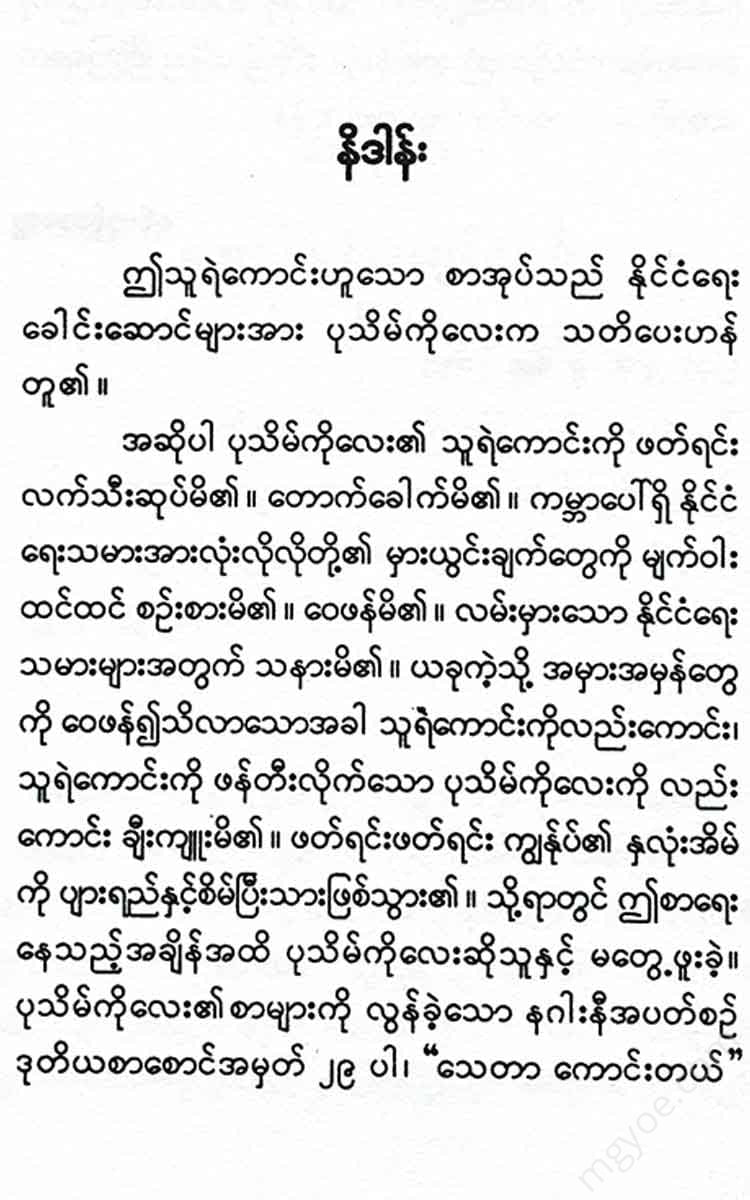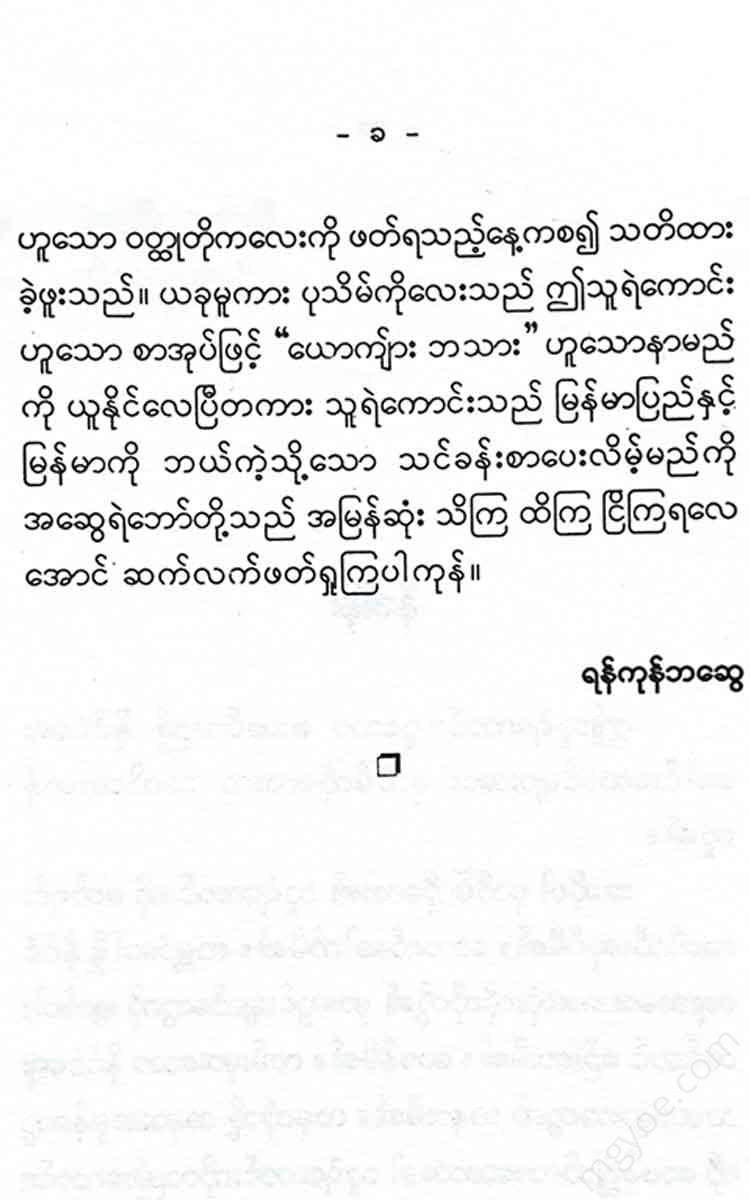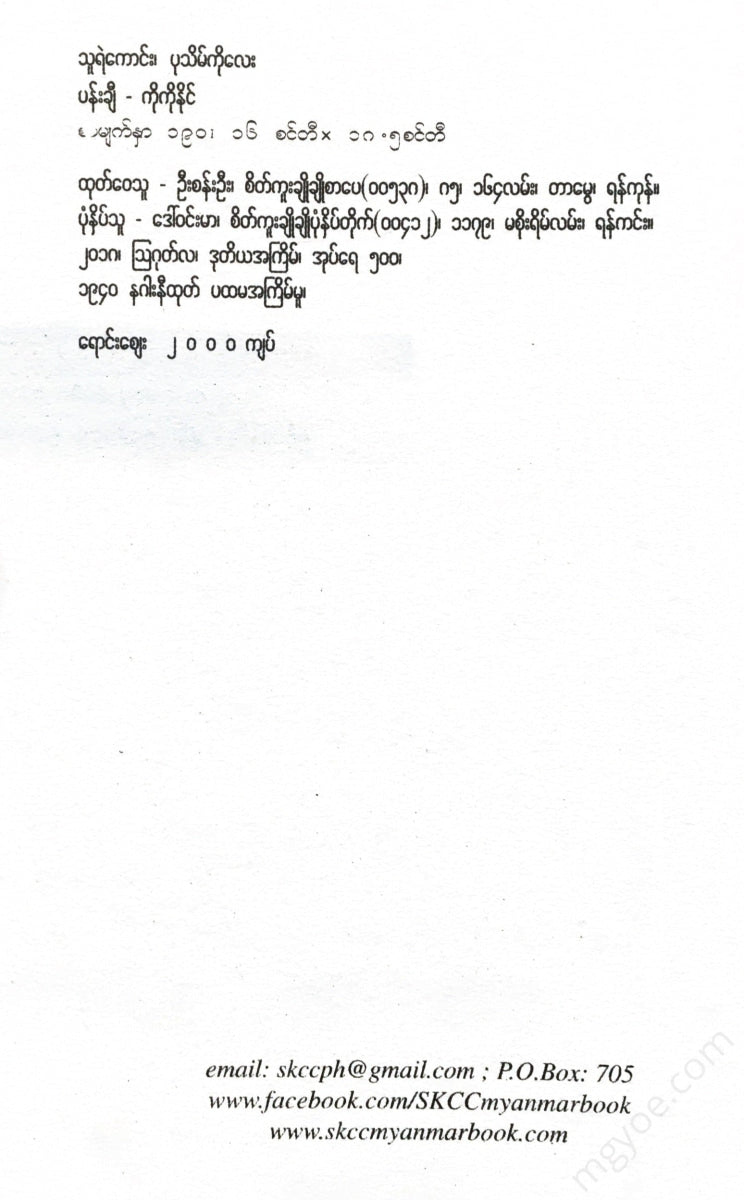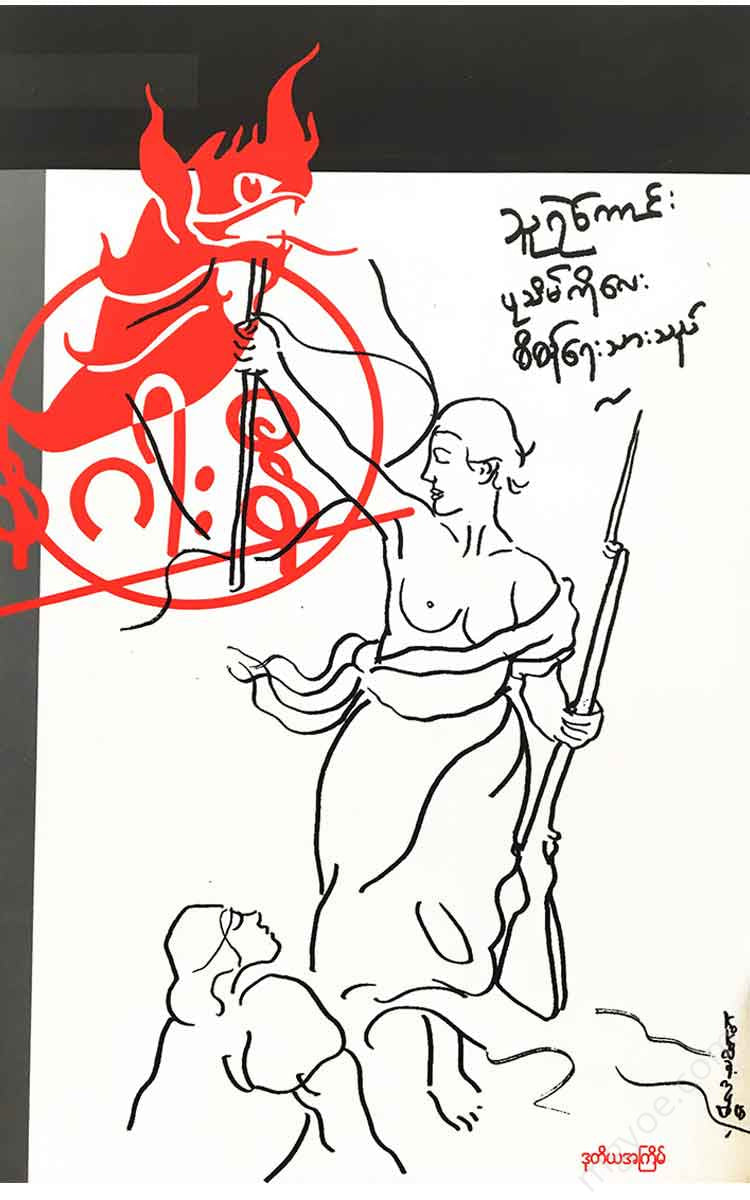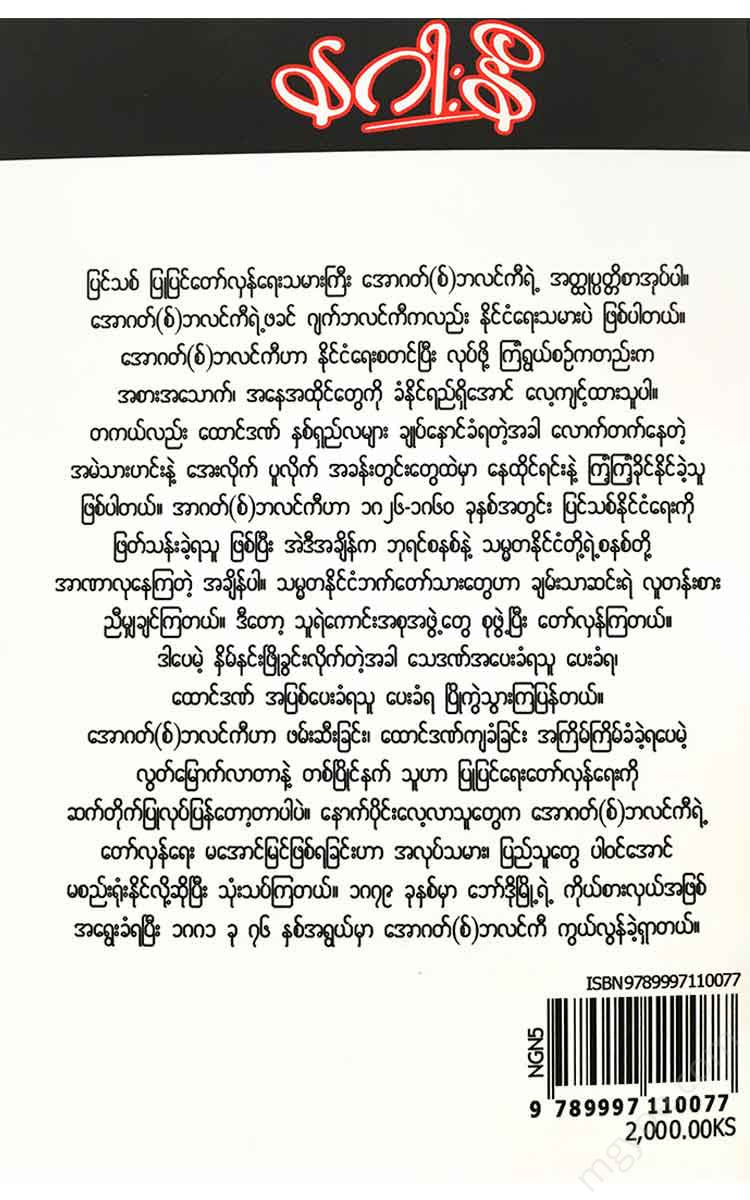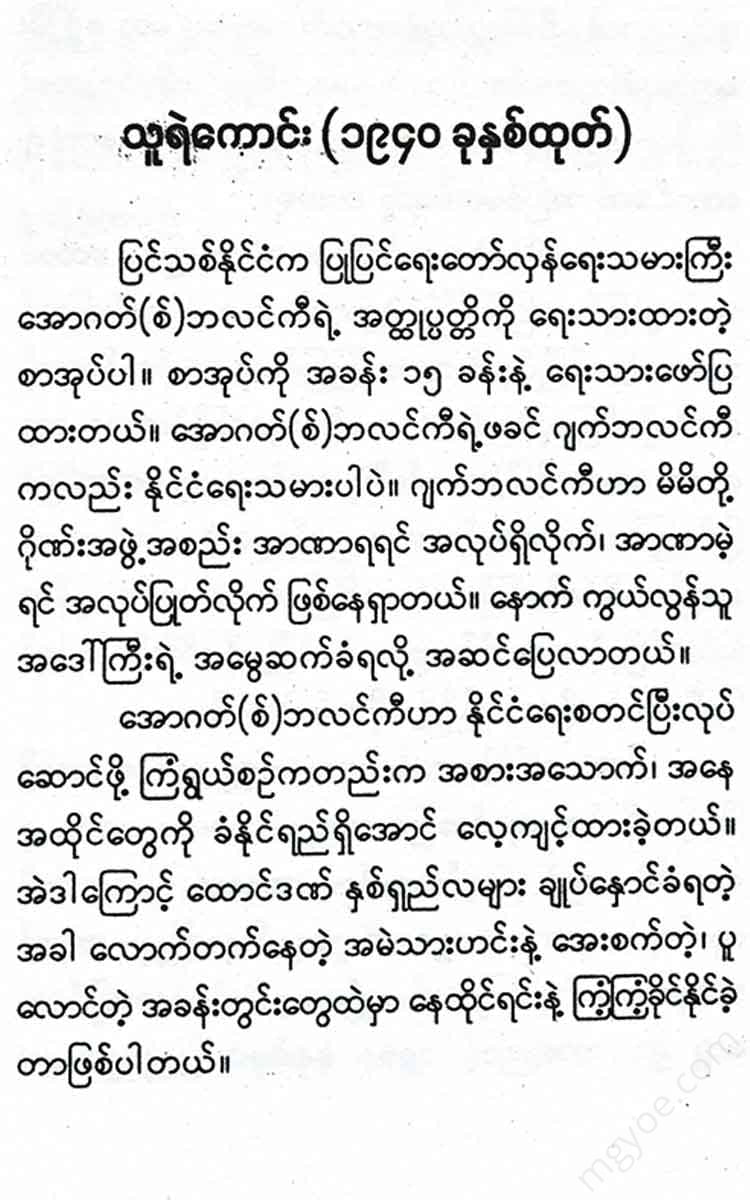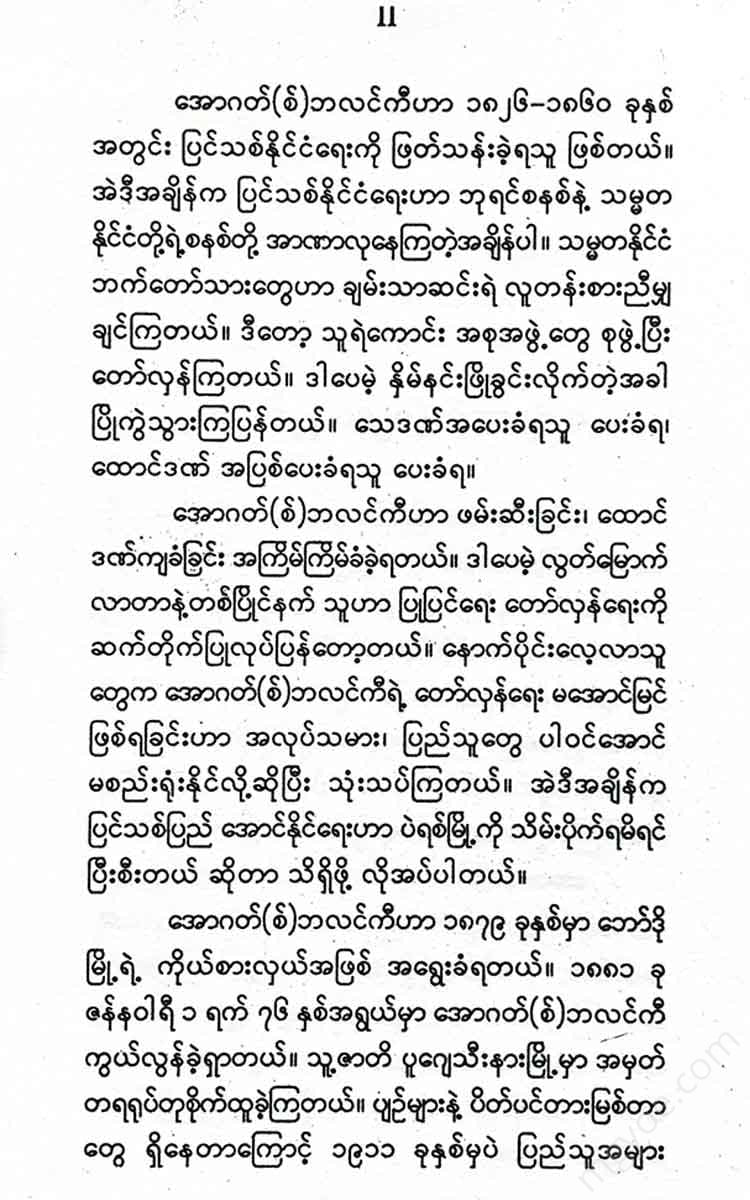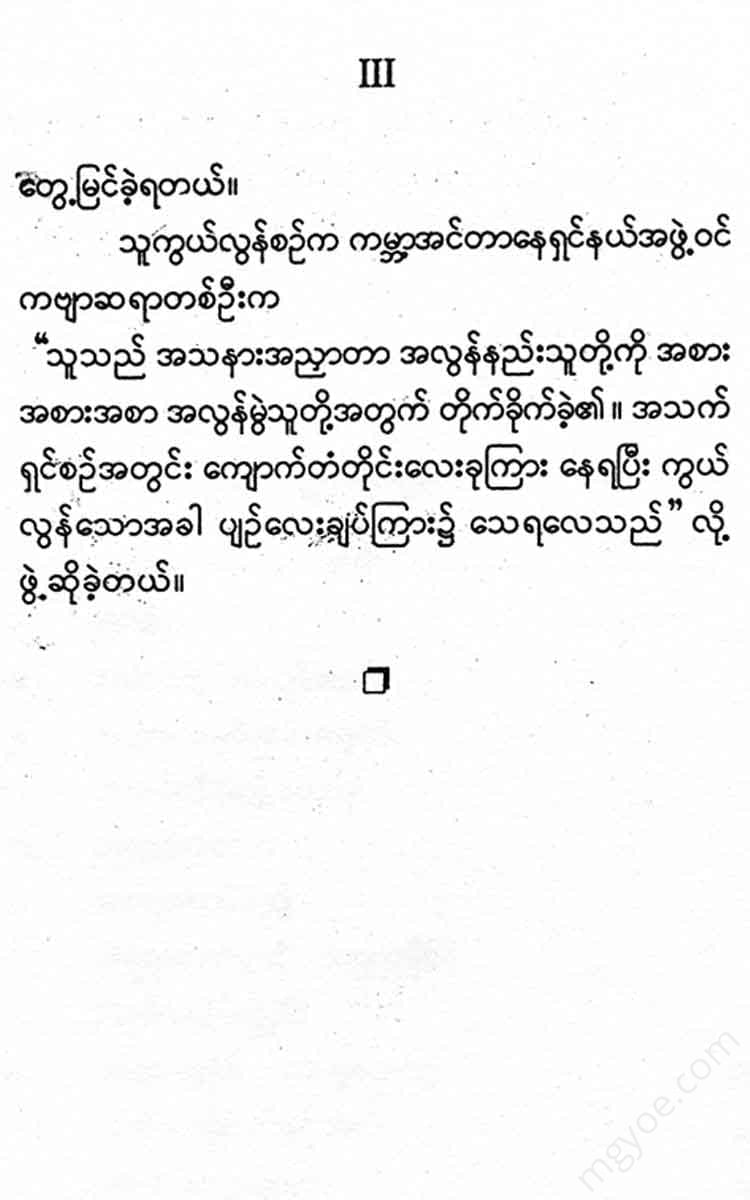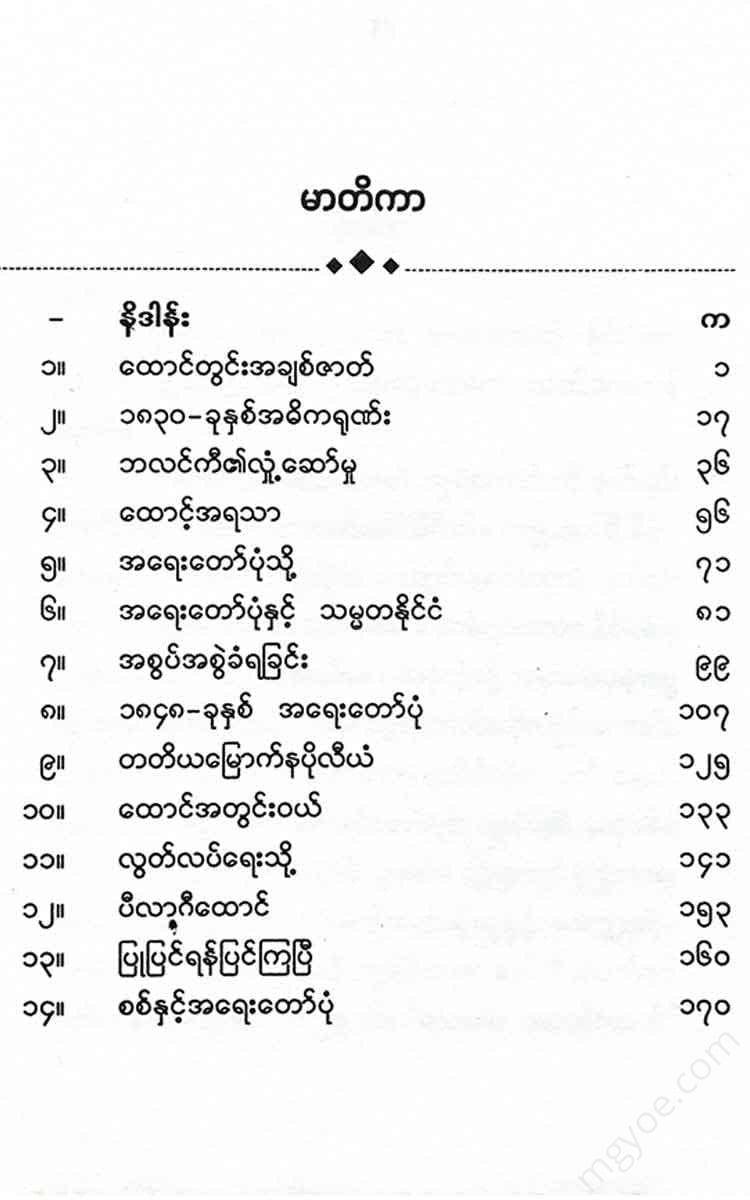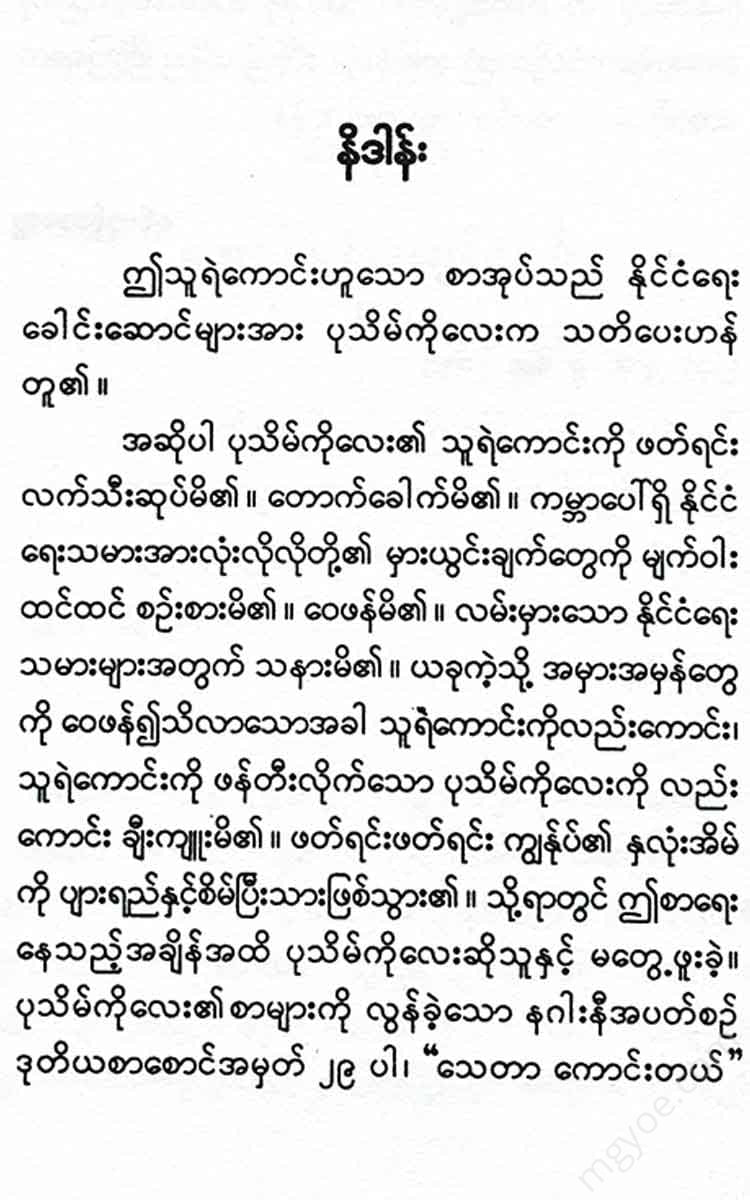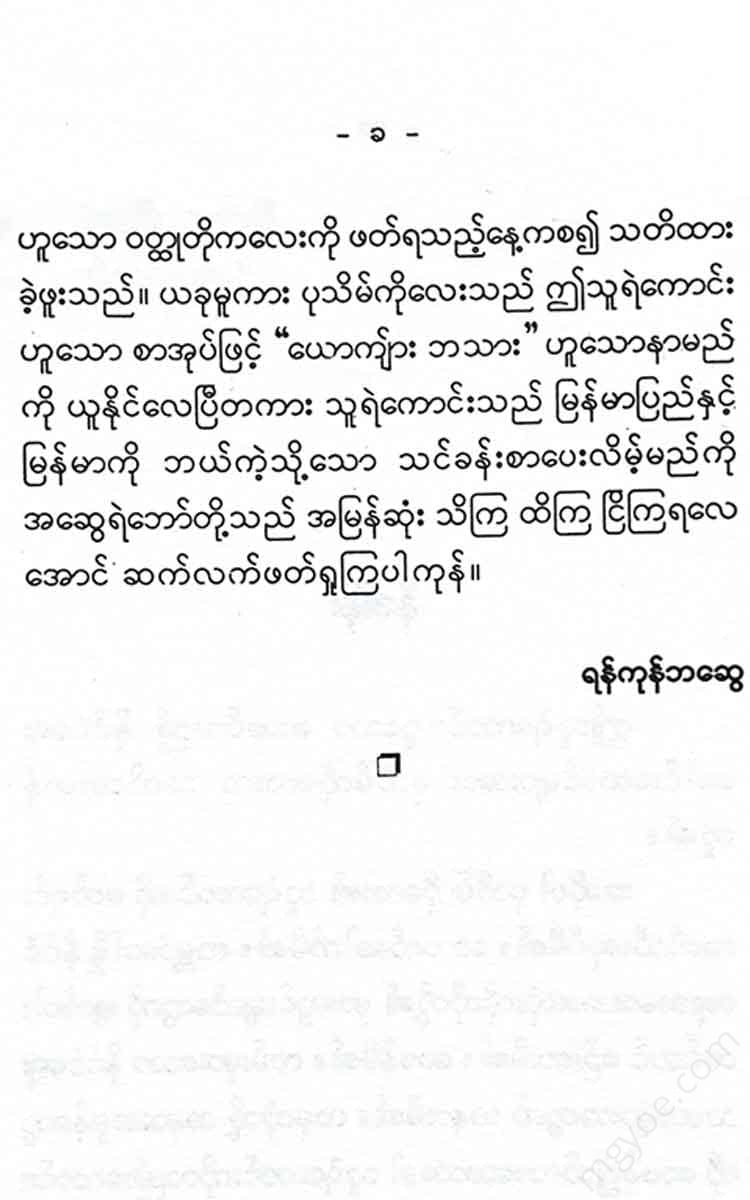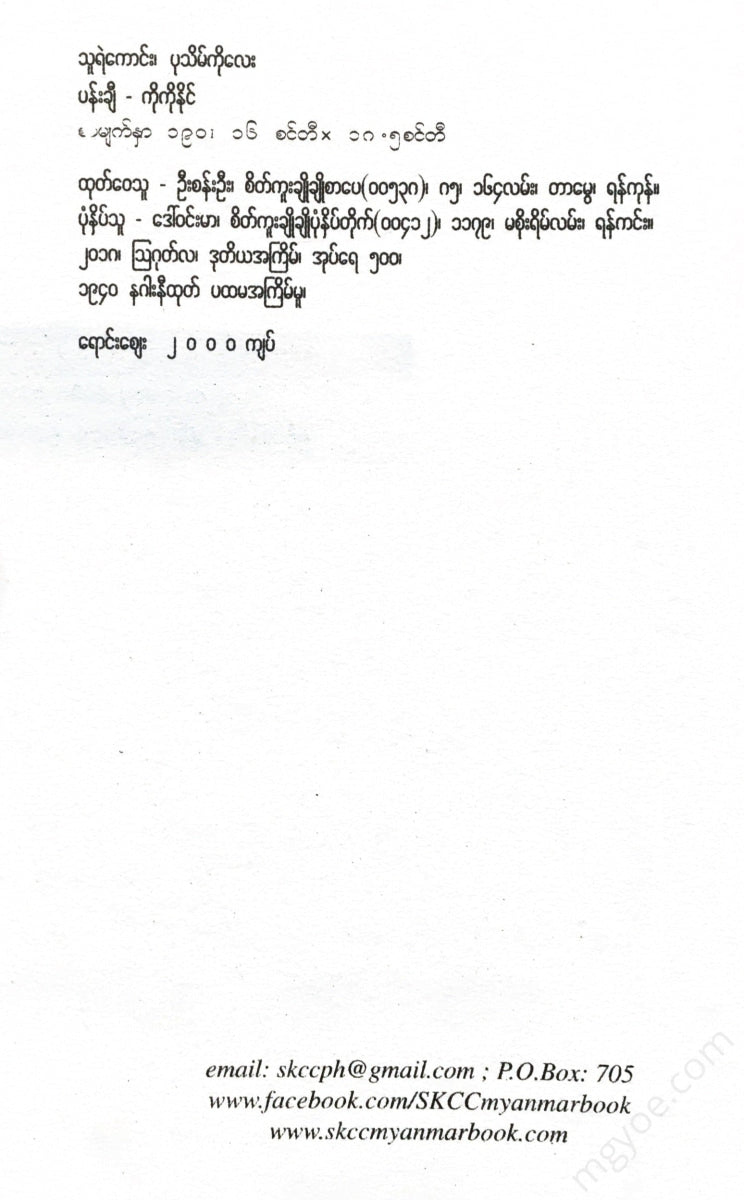စိတ်ကူးချိုချိုစာပေ
Pathein Kolay - Hero
Pathein Kolay - Hero
Couldn't load pickup availability
“Instead of wasting time in a life of anxiety and unfreedom, we need to set a goal and take action.”
Karl Marx (s)
In 1789, the world-famous French Revolution took place. At that time, there was a city called Nice on the Mediterranean coast on the southeastern border of France. By 1729, Nice was particularly bustling with the arrival of many nobles who had fled the French Republic and were afraid of the government. These refugees were plotting to one day return to France with the help of foreign armies and rule. The republican supporters in Nice were also watching these nobles and their local elites with caution, anticipating the march of the French Republic.
Soon, a French Republican army marched into Nice, which was welcomed with joy by the people of Nice. About a year later, when the war was over, Nice, in accordance with the wishes of the people of Nice, joined the French Republic, and, as was customary, sent two delegates to the Paris Convention. One of these delegates was Jean-Dominique Blincke.
Jean-Dominique Blinck was the son of a wealthy tanner. He was well educated. In 1789, during the French Revolution, Jean-Dominique was taking his M.A. at the École des Sciences in Nice. His parents were middle-class, and he was of middle-class disposition, so he was a moderate presidential politician. When he was elected to the Paris Convention in 1793 as a delegate from Nice, Jean-Dominique joined the Girondins, who were like-minded.
The Girondins were representatives of the middle class, the industrialists and merchants. Before Giemblaque arrived in Paris, a political power struggle broke out between the Girondins and the Jacobins, the reformists in Paris, who represented the children of the artisans and the children of the bourgeoisie.
The Jacobins not only forced the French king to be overthrown, but by the time Giemblaque arrived in Paris, the Girondins were demanding the abolition of feudal rights and the debts owed to the landlords by the poor, the prosecution and suppression of those who sold food at high prices, and the levying of taxes on the rich to finance the war.
At that time, there was evidence that the Girondins were very poorly governed, and the French Republican armies under their command were losing almost every battle. One of the Girondin leaders had defected to the enemy. Furthermore, although the Girondins were unable to advance the French Revolution, they did not prevent the personal property rights of the people from being restricted.
The people were strongly opposed to the will of the people. As foreign armies were advancing on Paris, the Girondins intervened and defended the Jacobins' accusations against the unscrupulous financiers and profiteers.
Thus, less than seven days after Giamblinck arrived in Paris, a fire broke out in the Convention, and on May 31, 1793, the Girondins were overthrown. As a result, the Girondins were arrested and the fugitives fled the country, inciting the Jacobins to reform. Giamblinck submitted a letter of protest and continued to abstain from the session. When the Jacobins came to political power, they completely reformed the landownership system and successfully suppressed the Girondin uprising. In October of that year, more Girondins were arrested, and Giamblinck joined them.
The Jacobins' efforts led to the French Revolution of 1794. Although they succeeded in suppressing their domestic and foreign enemies, the internal affairs of the sect became increasingly complicated. Starting around 1792, a very powerful group of people led by the "Rabbit" emerged within the Jacobins. This group was a "very idealistic" group that believed that people should be free from personal property. They wanted to eliminate the financiers, the big landowners, and those who cared for the poor and the needy. Therefore, as soon as the Jacobins came to power, they eliminated the "madman" who did not believe in the equality of all people. Then, in 1794, they beheaded "Hebert" and a group of people who advocated a socialist ideology that limited personal property. He also beheaded a group of people, including "Donton," a Girondin-like figure who had been involved in financial gain by contacting the pro-king faction.
Despite all opposition, the influence of the Jacobin sect led by the “Routes” was on the wane in 1794. After seizing political power from the Girondins, the “Routes” planned to put into practice his economic and social system. According to the above system, private ownership of property would not be abolished, but would be limited. He would then suppress profiteers, and those who did not appear to be of good character, both in their personal and public relations, would be expelled from public affairs. Routes wanted to establish a “utopia” that was very good in its idea, but was impossible in reality due to its lack of system. In the country he would establish, all people would be equal, and farming would be the main occupation of the people.
The middle class, however, became dissatisfied with the idea of "Raw Rice" and plotted to destroy it. This middle class was like the mainspring of the great machine that caused the world-famous French Revolution. Therefore, it was impossible for it to work against its interests. Moreover, the peasants, shopkeepers, and merchants, the "poor middle class," were satisfied that the monarchy and the aristocracy had been wiped out, and had abandoned the reform. They wanted only a strong government that would allow them to work peacefully and peacefully, and that would suppress and destroy the plans of the big capitalists to dominate the country. Therefore, the Jacobin sect led by "Raw Rice" broke away from the masses of the country, and in 1795, "Raw Rice" was beheaded. Then the Girondins were released from prison.
When released from prison, Gimbelinsky continued to attend the convention, but he no longer took the lead in matters other than voting and collecting salaries. While he was quiet, he
He wrote a book about his time in prison called "Ten Months in Prison, Suffering."
